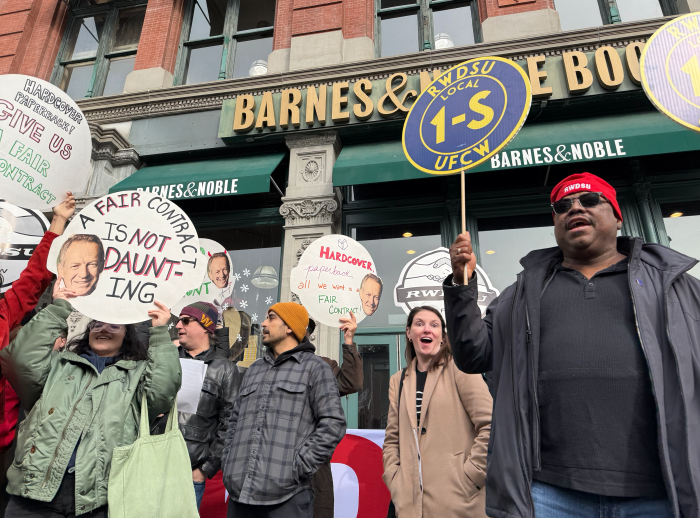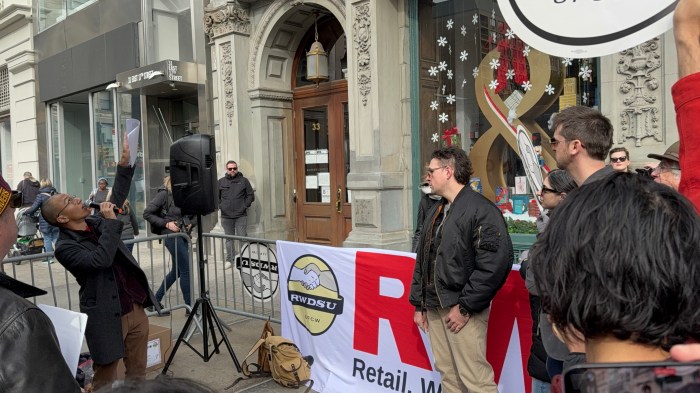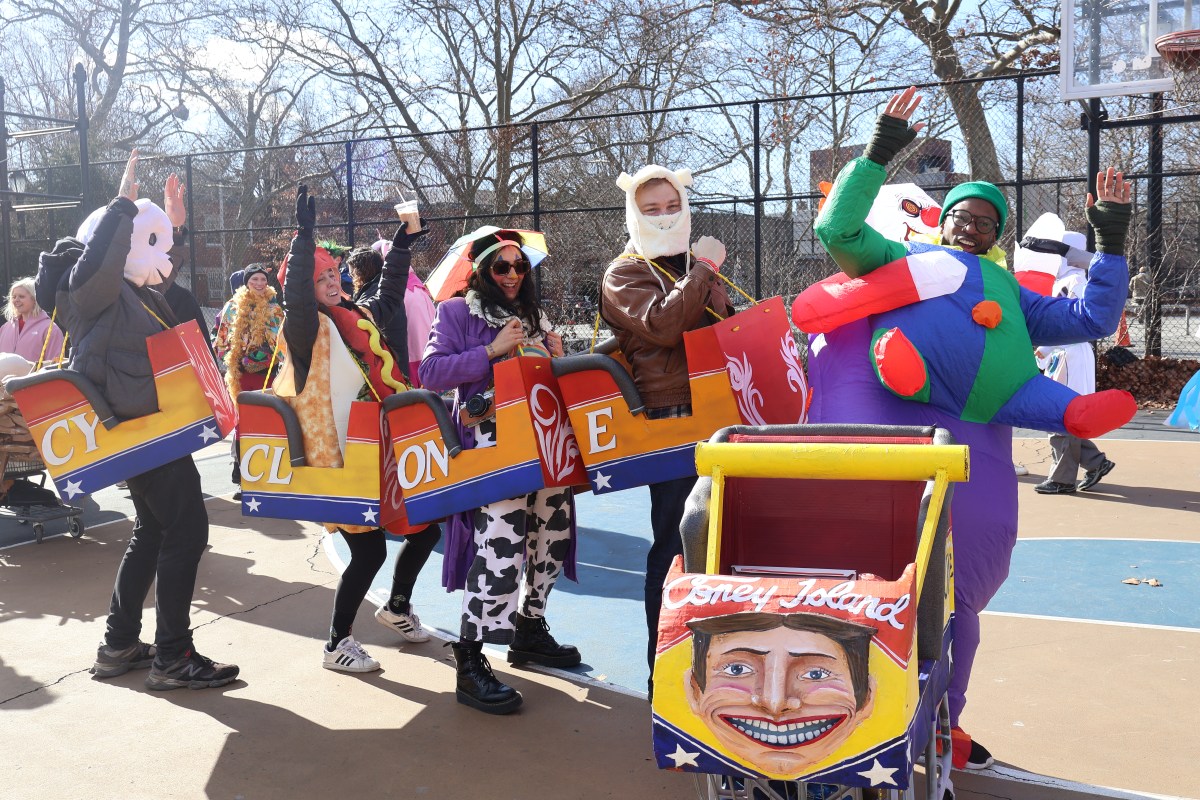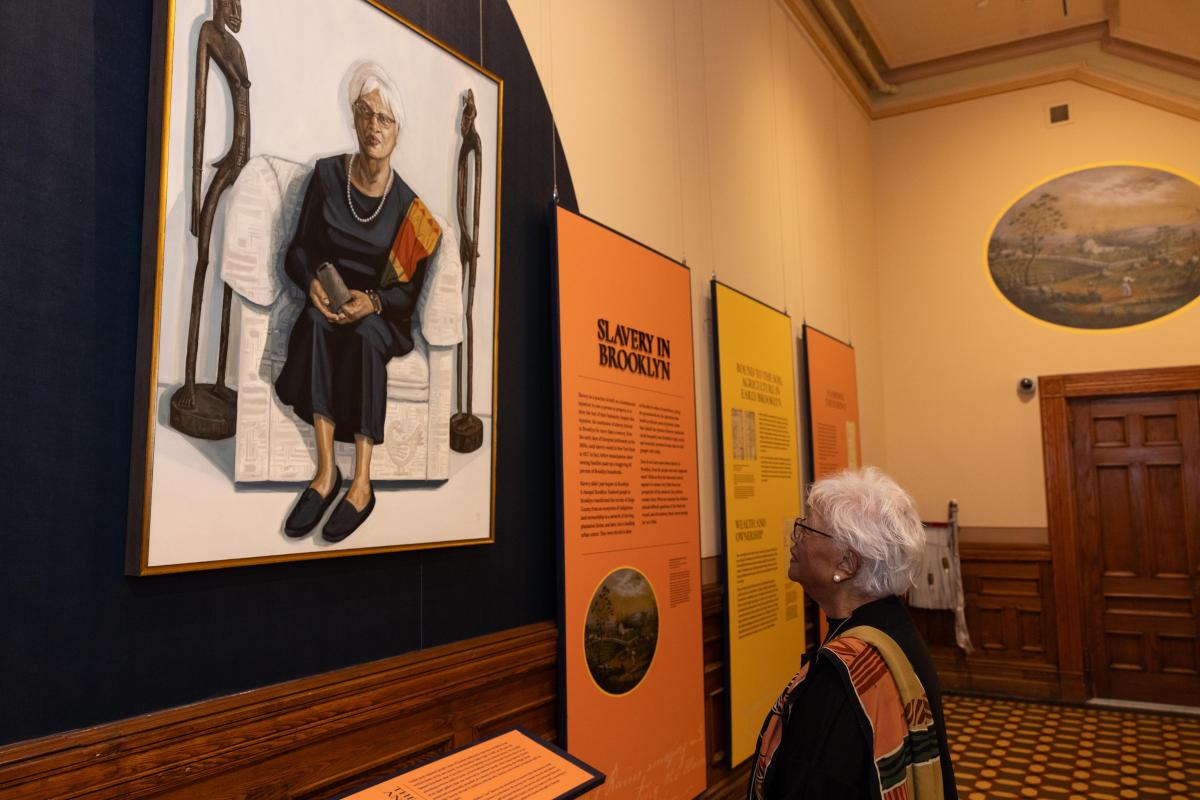Barnes & Noble workers and labor groups rallied in Union Square on Thursday to demand the book retailer reach an inaugural contract for its unionized employees before the end of 2024.
The workers joined members of the Retail, Wholesale and Department Store Union (RWDSU) at the Barnes & Noble flagship at 33 East 17 St. to urge the company to agree to a labor agreement just as the 2024 holiday shopping season gets underway.
This is the first contract fight for workers at the city’s three unionized Barnes & Noble stores. The other two locations are in Park Slope, Brooklyn, and on the Upper West Side at Broadway and 82nd Street. All three stores unionized between 2023 and 2024.
Workers at the rally insisted that the book chain, which has experienced many store closures in recent years, refused to pay fair wages. Frustrated workers also said the company had prevented the union from settling the first union contracts and getting union benefits, including healthcare and protection from store closure and relocation.
“We’re asking at this point in our negotiations for a fair contract,” said Gina Fowler, a senior barista and bookseller at the Upper West Side location. “My store unionized in March of this year. All of the stores are united and working together.”
Fowler added, however, that the company is bargaining with each store separately.
“We’re rehashing a lot of the same issues that a lot of stores have already settled,” she said. “What we’re asking for right now is to get a contract done and for that contract to include a living wage.”
The starting pay is $18 per hour at each of the locations. Fowler said the company offered the union a 25-cent raise as part of the bargaining.

Danielle Franceschetti, a senior bookseller at the Union Square store, said workers will unite to “fight back” in the face of politicians who oppose unions.
“The administration coming into this country has made no secret about its feelings on unions,” she said. “Together as book workers, we have the collective ability and strength to fight back. One voice together to set industry standards on pay, necessary paid time off, breaks, health benefits, safety needs and more. Together, not just Barnes & Noble, we will get it.”
‘Unreasonable’ demands
James Daunt, CEO of Barnes & Noble, said the union wants a contract with an estimated 60% increase to their wages, which he called “unreasonable” for a bookseller in the current market.
“Barnes & Noble was on the brink of bankruptcy just a few years ago,” he said in a statement. “As it is, Barnes & Noble has increased average hourly pay by 36% since the end of 2019, and pays more than other NYC bookstores, including those with negotiated union contracts.”
Daunt added that the contracts also require union members to pay annual union dues of over $500, “widening the gap” further.
“We aspire to pay as well as possible whilst also remaining prudently run, as we rebuild the success of Barnes & Noble as a bookseller,” he said.
Fellow RWDSU bookselling union members from McNally Jackson, Greenlight and Book Culture, as well as Strand Book Store workers, who are members of UAW 2179, joined the Barnes & Noble workers at the rally.

RWDSU president Stuart Appelbaum refuted Daunt’s statements that the book-selling industry is suffering.
“The book-selling industry is booming again, and people are craving the knowledgeable booksellers and cozy corners of the cafes at Barnes & Noble,” he said. “It’s time the largest corporate industry retailer set the standard and reach a fair contract – let’s get it done before the holiday rush sets in.”
Meanwhile, Fowler and other workers said they love their jobs — and books — while enjoying being part of their communities.
“We want to be able to actually do that and still afford to live in the city and have stability and be able and devote our energy to the work without having it feel like a drain for feeling like we’re not valued,” she said.




































